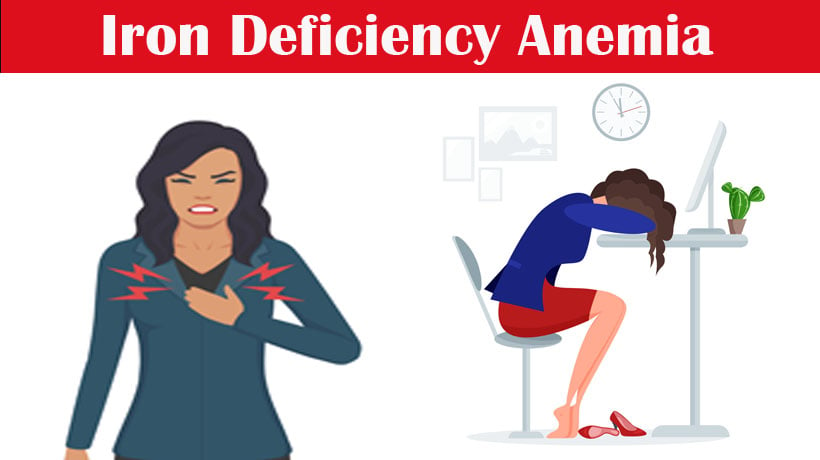Iron deficiency anemia is a health condition that occurs when your body has a deficiency in iron. If you’re pregnant or if you’re thinking about becoming pregnant, it’s important that you check your iron level and maintain it if it’s healthy. Here’s what you need to know about iron deficiency anemia and how to treat it.
Risk factors for iron deficiency anemia
Some women are more susceptible to iron deficiency anemia than others, especially if they have conditions which make them experience bleeding. According to the American Society of Hematology, the risk factors are, “Women who menstruate, particularly if menstrual periods are heavy, women who are pregnant or breastfeeding or those who have recently given birth, people with inflammatory bowel diseases, and people with peptic ulcer disease.” Those who have an iron deficiency can also develop this condition.
Symptoms of iron deficiency anemia
Symptoms of iron deficiency anemia aren’t sudden. In fact, they come about slowly, often becoming discernable when they affect your daily life. According to Mayo Clinic, “Iron deficiency anemia signs and symptoms may include: Extreme fatigue, weakness, pale skin, chest pain, fast heartbeat or shortness of breath, dizziness, and unusual cravings for non-nutritive substances such as ice, dirt or starch.” If you suspect you have more than one symptom of iron deficiency anemia, then speak to your doctor about a blood test for iron and a complete blood count (CBC) test.
Iron deficiency treatment
Once you’re diagnosed, treatment is either a change in diet or a daily over-the-counter iron supplement pill to swallow with vitamin C. According to the National Institutes of Health, “The richest sources of heme iron in the diet include lean meat and seafood…Dietary sources of nonheme iron include nuts, beans, vegetables, and fortified grain products.” Iron supplement pills might cause stomach cramps or nausea if taken on an empty stomach, so take it with meals if you develop side effects.
What happens if iron deficiency anemia isn’t treated
Left untreated, iron deficiency anemia can cause problems for your other organs, such as your heart and lungs. According to the UK’s National Health Service, “Severe iron deficiency anemia may increase your risk of developing complications that affect the heart or lungs, such as an abnormally fast heartbeat (tachycardia) or heart failure.” This is because iron fuels your blood cells with oxygen and helps the heart maintain a balance in the body.
Iron deficiency anemia and pregnancy
Being pregnant raises your risk of developing iron deficiency anemia because your body is using your blood to support you and your unborn baby. According to Mayo Clinic, “During pregnancy, you need double the amount of iron that nonpregnant women need…your body needs this iron to make more blood to supply oxygen to your baby.” Iron deficiency anemia can cause low birth weight for your baby if it worsens and is left untreated.
How to prevent iron deficiency anemia
To prevent iron deficiency anemia, you need to give your body the iron it needs, whether through your diet or through an iron supplement pill, especially if you’re pregnant. According to Healthline, “When caused by inadequate iron intake, iron deficiency anemia can be prevented by eating a diet high in iron-rich foods and vitamin C.” The recommended intake of iron for women is 18 mg, and the intake for pregnant women is 27 mg.
Sources:
http://www.hematology.org/Patients/Anemia/Iron-Deficiency.aspx
https://www.mayoclinic.org/diseases-conditions/iron-deficiency-anemia/symptoms-causes/syc-20355034
https://ods.od.nih.gov/factsheets/Iron-HealthProfessional/
https://www.nhsinform.scot/illnesses-and-conditions/nutritional/iron-deficiency-anaemia
https://www.mayoclinic.org/healthy-lifestyle/pregnancy-week-by-week/in-depth/anemia-during-pregnancy/art-20114455
https://www.healthline.com/health/iron-deficiency-anemia#prevention



